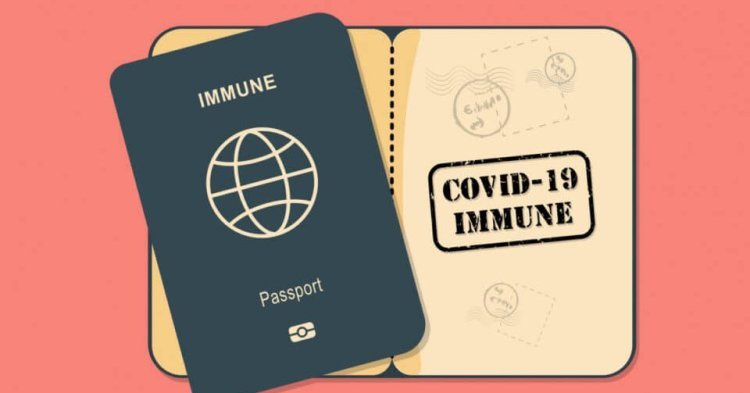This course of action follows after Iceland, who became the first EU member state to provide COVID-19 vaccination certificates to citizens that received both doses of the vaccine. In addition, the island nation will also recognize any ‘immunity passports’ from the EEA/EFTA area that is authorized by the European Medicines Agency.
With all three countries being members of the EU, the question lingers for other member states upon whether or not COVID-19 vaccination passports will become an efficient method of allowing travel across borders.
EU and International Bodies Lack Clarity and Agreement
The World Health Organization’s (WHO) stance on vaccination passports remains the same since a press briefing on 4 December, in which Dr Catherine Smallwood, Senior Emergency Officer at WHO Europe, advised against the idea.
“We do not recommend immunity passports nor do we recommend testing as a means to prevent transmission across borders,” she said. “What we do recommend is that countries look at the data on transmission both within their countries and beyond their borders and adjust their travel guidance to people accordingly”.
However, media portal Euronews reported that the WHO signed an agreement with Estonia in October to assist in the development of a digital vaccination certificate, which causes ground for confusion upon whether or not international bodies are for or against the possibility of an immunity passport.
To make matters plunge further into a state of disarray, the European Commission President Ursula Von der Leyen stated during a press conference in January with Portugese Prime Minister António Costa, that she supports the idea of the vaccination certificate and motioned for agreements to be made at European level.
In rebuttal, European Council president Charles Michel agreed to an extent with Von der Leyen’s stance, yet advised that it is too soon to approach the idea. “If we had to implement it too early, that would create enormous frustration,” said Michel during a discussion on Dutch public channel NPO in late January.
Which Countries For, Which Against?
EU members that have a heavy reliance on their tourism sector, are notably pushing for the passport, such as Greece. During a visit to Israel, where Greece is forming a deal with Israel to allow travel between the two countries if vaccinated, Greek Prime Minister Kyriakos Mitsotakis affirmed the support of the vaccination passport.
“We must make it easier for travelers who have proof of vaccination,” said Mitsotakis during the visit. “I expect what we’re doing with Israel to be in essence a trial for what we can do with other countries.”
On 21 January, EU heads of state met via video conference to discuss the possibility, with EU Council President Charles Michel affirming his stance on the topic being assessed far too early, needing more time.
“Leaders reaffirmed the need to have a close follow-up of the vaccination process. All possible means will be examined to ensure rapid supply, including early distribution to avoid delays,” said Michel.
Mitsotakis also wrote an opinion piece before the meeting on how strongly he feels that these passports should manifest in the near future, insisting that he would make the topic heard strongly as the leaders met.
“Through the EU wide introduction of an agreed and standardised digital vaccine certificate template we can quickly open up again, reviving tourism and recreation, and allowing our citizens to move freely and without restrictions from country to country” wrote Mitsotakis.
What Are Other EU Countries Saying?
Both Spain and Portugal have also showcased some sort of support for the idea, with Portugal’s Interior Minister Eduardo Cabrita expressing their backing during a meeting with European Commissioner for Home Affairs, Ylva Johansson. Cabrita believes that the certificates “should act as proof of security and do away with certain requirements at borders — in particular, the requirement for PCR tests.”
Arancha, Gonzalez, Spain’s Foreign Minister, revealed Spain’s support for the certificates as well during an interview on the country’s national radio service, RNE in late January.
“Vaccine certification is something we are going towards inevitably. It will be a very important element to guarantee a safe return to mobility,” said Gonzalez.
However, not all EU countries are so thrilled about the eagerness to allow travel to open up once more through these stamps of immunity. Leaders of France and Romania have vocalized their position against, as Secretary of State for European Affairs Clément Beaune told Franceinfo that the discussion of a vaccination passport is too early to be held. She claimed that it would be unfair to those that have not received the vaccine, stating that “the campaign is still just starting across Europe.”
President of Romania, Klaus Iohannis, revealed that he is on the same page as Beaune, saying that it would “divide the population of Europe in two” and “there must be a vaccination certificate, but it must be used for medical reasons, not for travel.”
Since many factors are involved in the vaccination passport, it may be quite some time before the European Union reaches a consensus altogether, thus rendering border travel unclear for many.


Follow the comments: |
|
